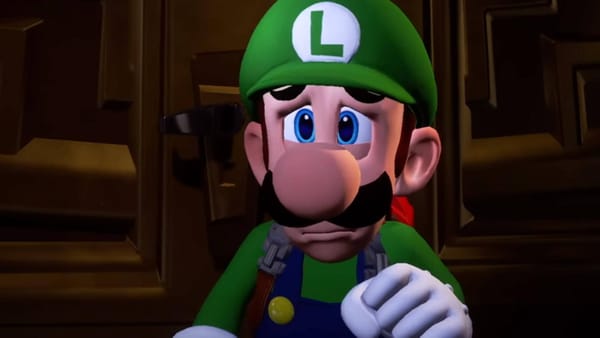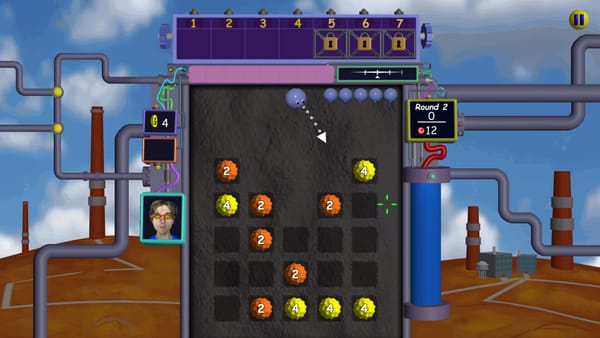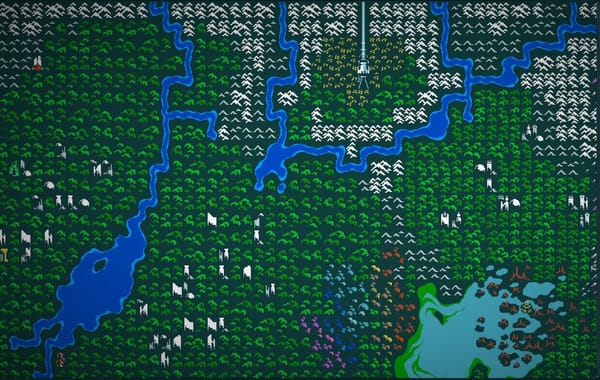Spoil the Buzzards: Give 'Em Landlords
...or how I learned to stop caring and hate my landlord.
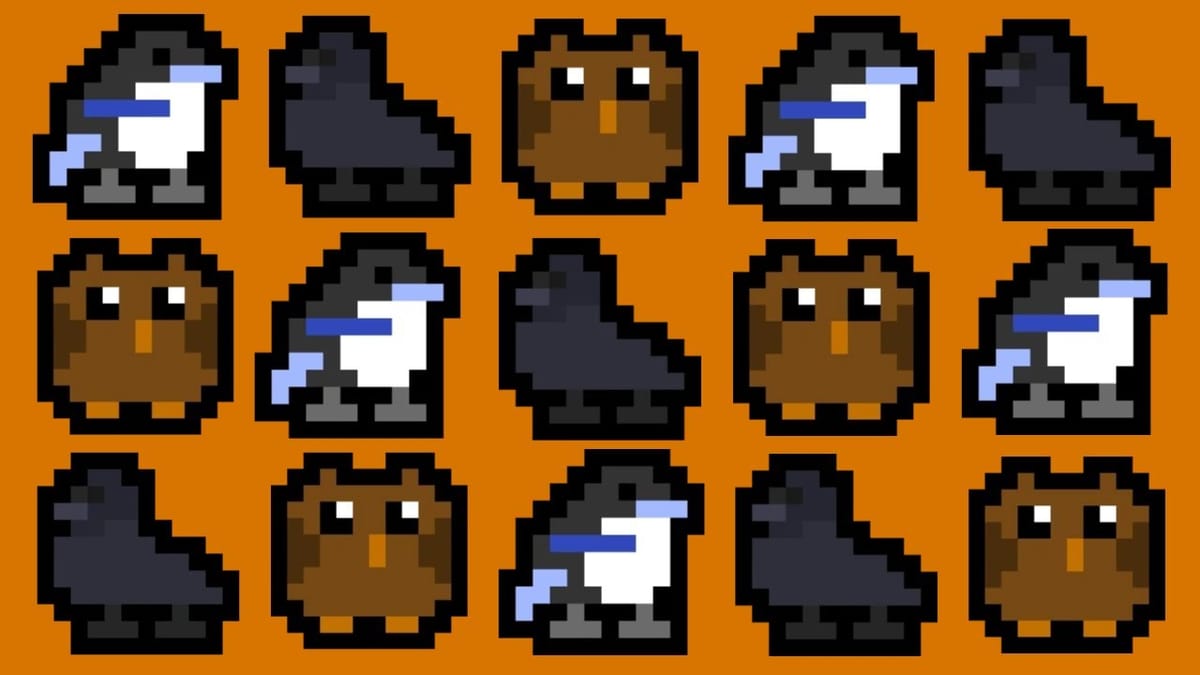
If life's a bitch, then luck's a landlord.
"I can quit whenever I want!", I'll shout at my intervention. It's no secret that 2024's rogue-like, deck-builder, joker-'em-up, Balatro is addictive. It's that special type of "one more run before bed" type of game that leaves you red-eyed, staring at the sunrise hours later. Poker hands are played, enhanced by the power of devious jokers, to scorch the points multiplier ablaze. Small and big blinds predate a Boss Blind, where dealer chips offer severe disadvantages to your played hands. When you hit those synergies, God it feels like winning big bucks at the Texas-Hold-'Em table.
I think I might save some more personal experiences for later. I can easily see Balatro remaining in my top 5 for this year's 2024 Roundup, or having an appearance as an honorable mention. I instead want to talk about about lesser-known game that hits the same kind of notes: Luck Be A Landlord. It's a game that, similarly to Balatro, toys with the joys of cheating, the playfulness of breaking a game entirely. It gives the game enough room to politely stab you with a knife sharpened with an anti-capitalist edge. It's a game about how landlords are absolute assholes.
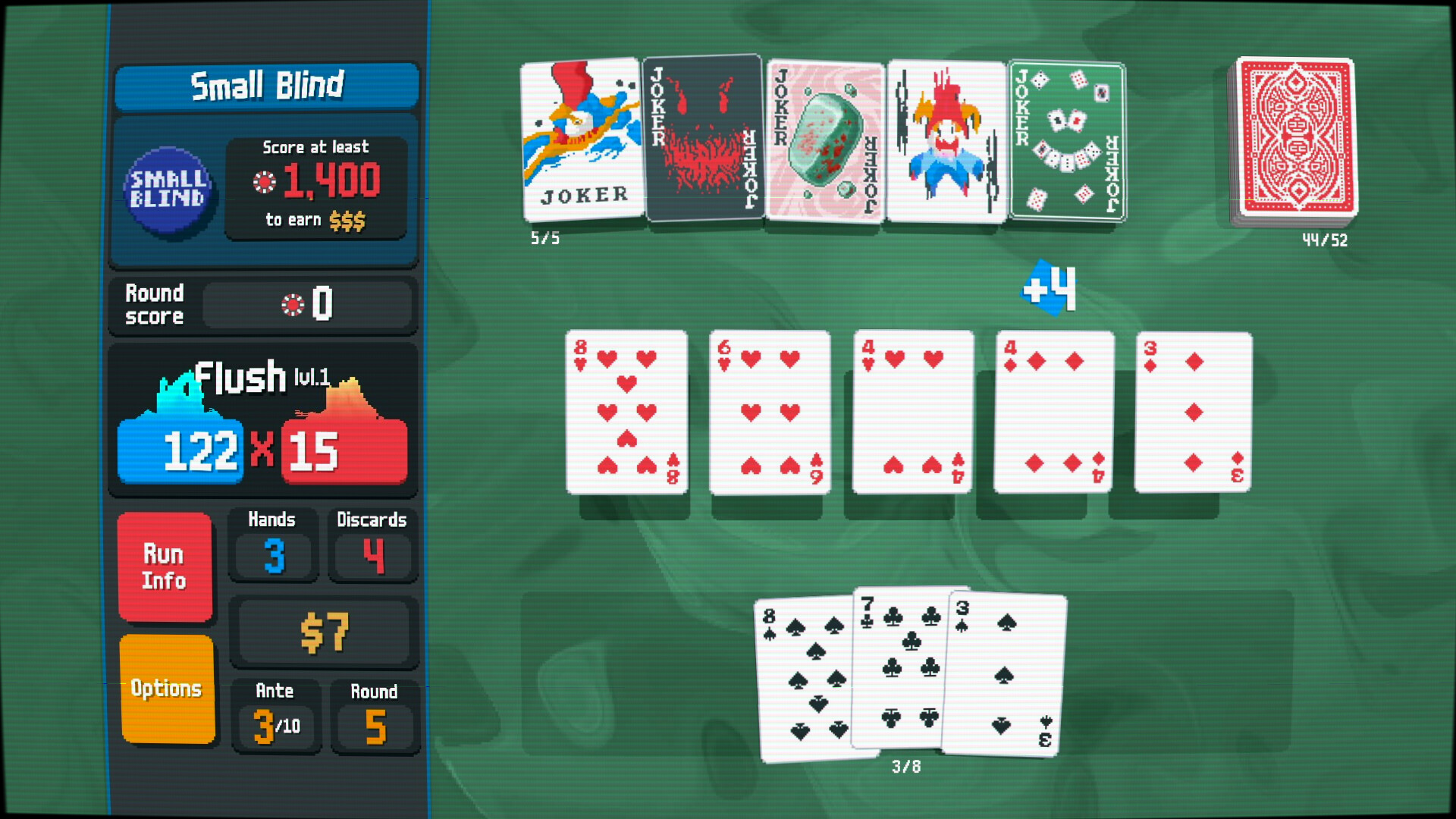
Luck Be A Landlord is to slot machines what Balatro is to poker. It transforms an ordinary gambling game into an intense videogame experience, retaining the endorphin rush of winning big on a bet, and the harshness of losing it all on an unlucky round. As a victim of society, you are forced to rent an apartment from a greedy landlord with a single method to gain income: slots. One coin is the price of entry, each month gives you a certain number of spins to pay rent, which increases after every successful payment. Failure means eviction, a game over and having to wipe your tears as you restart from the beginning.
After each spin, you are given the chance to add different symbols to the columns of your magical slot machine, each with their own value and special ability. A cat consumes adjacent milk for extra coins, a row of crabs add value to your final score count and dogs, beloved by all humans, get pats on the head, increasing their coin output. The goal is not akin to real-life slots, in the sense you're not trying to match identical symbols in a line, but instead attempt to create synergies by...uh..building your...uh..."deck" correctly. To aid you in this, you can add items at the end of each rent cycle to permanently buff existing symbols or give you certain advantages, like increasing the likelihood of high-value, rare symbols appearing or re-rolling dice if they score below a certain threshold.
Variety might be the spice of life, but spreading your symbols into many different types will spell defeat. There's a limit to what the slot machine can roll. Let's say a high-value Moon that buffs existing owls and wolfs, which, in this theoretical example, comprise the majority of your deck, might be obfuscated by a lesser-value series of 1-point cherries wildly flashing on the screening, kicking your ass to the curb with all your belongings. Keep your deck small and consistent, and seek items that strengthen and improve your existing symbols.
The real magic comes when the synergies hit. Balatro has this cool flair, where the more points you get on a single hand, the faster the boops and flicks of your cards get, rewarding you with these stylistic changes when you have a feasible deck. Luck Be A Landlord does something similar, where the more synergies you hit, the more symbols interact with each other, the more coins get spit out and the scoring beeps rise in pitch, as if a devious dealer is playing a rising scale on a 16-bit piano. It's truly exhilarating to sit back and listen to this victory symphony.
It is in these synergies, that player power and agency can quickly transcend the limitations of the game, and break it entirely. Overpowered decks feel fun to play with not only because they feel like a reward for your blood sweat and tears, but also a symbol of your luck. I tend to prefer rogue-likes that prioritize skill over fortune, yet deck-builders like Balatro and Landlord continuously pull me back in, feverish for another go. It's the gambler mindset – my luck may have run afoul last game, but this one: this is the run. Luck truly is a landlord, coercing you out of your hard-earned paycheck every month and every spin of the wheel.
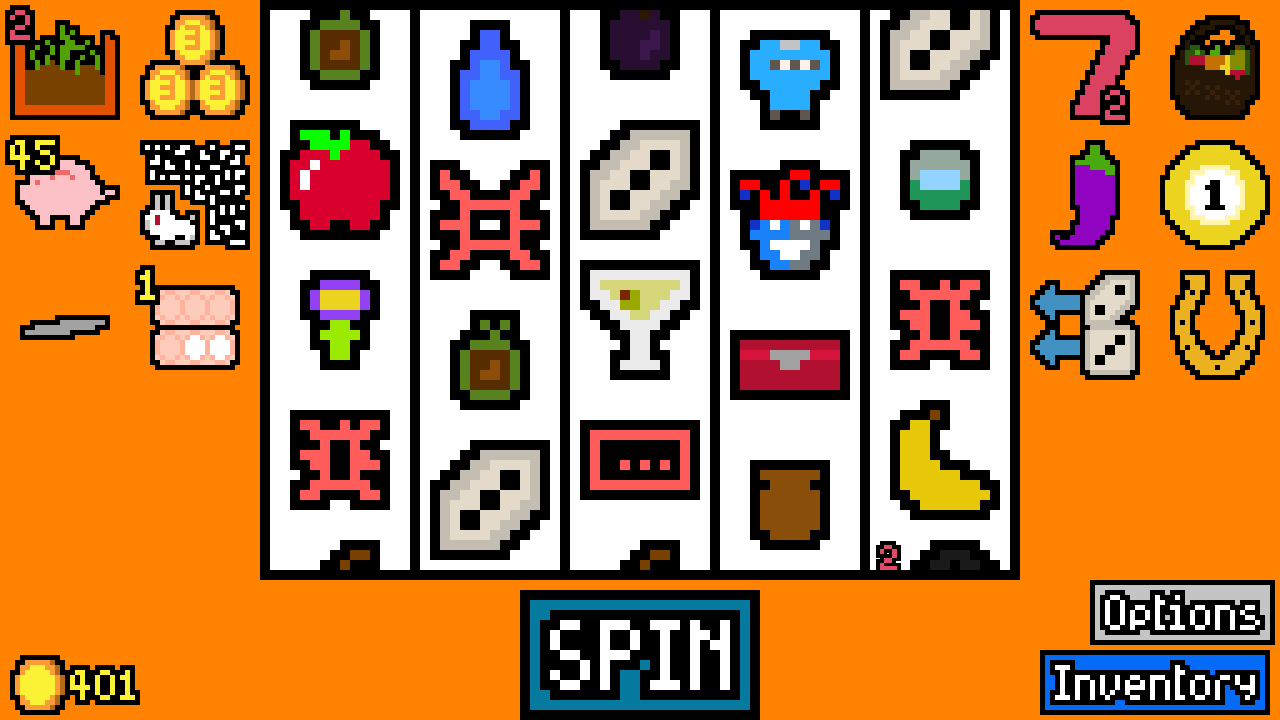
With its blocky, pixelated visuals, Luck Be a Landlord stands out aesthetically when compared to Balatro's more psychedelic, wavy backgrounds. Both are brilliant games when it comes to the eye's palate, but I desired a bit more of personality from Balatro, which Luck Be a Landlord delivers in spades (no poker pun intended). It isn't to say that Balatro's hundreds of unique Jokers aren't pleasing to the visual sensors, or foment a certain giddiness unique to collectors or even deliver on a certain pizazz to what would otherwise be a pretty ordinary poker-based deckbuilder, but just to plainly state I overall find Luck Be A Landlord to be a way more charming game.
I previously mentioned these tiny interactions symbols can have with each other. It is in these tiny aesthetic details where Luck Be a Landlord won me over. A dwarf (the LOTR kind, mind you) chugs beer with a hearty "glug glug" sound bite, a mouse audibly nibbles on cheese. My favorite sound cue is a double combo: ruffians destroy adjacent urns and tombstones with a satisfying smash, spawning spirits all over the slot machine, which disappear a few spins later in a cut-too-short, bit-compressed scream.
These small facets inform and impact our emotional experience of games. Luck Be A Landlord uses its visual style to slide in a not-too-subtle message that criticizes millionaires, landlords and general profiteers of oppression while remaining lighthearted and carefree at its core.
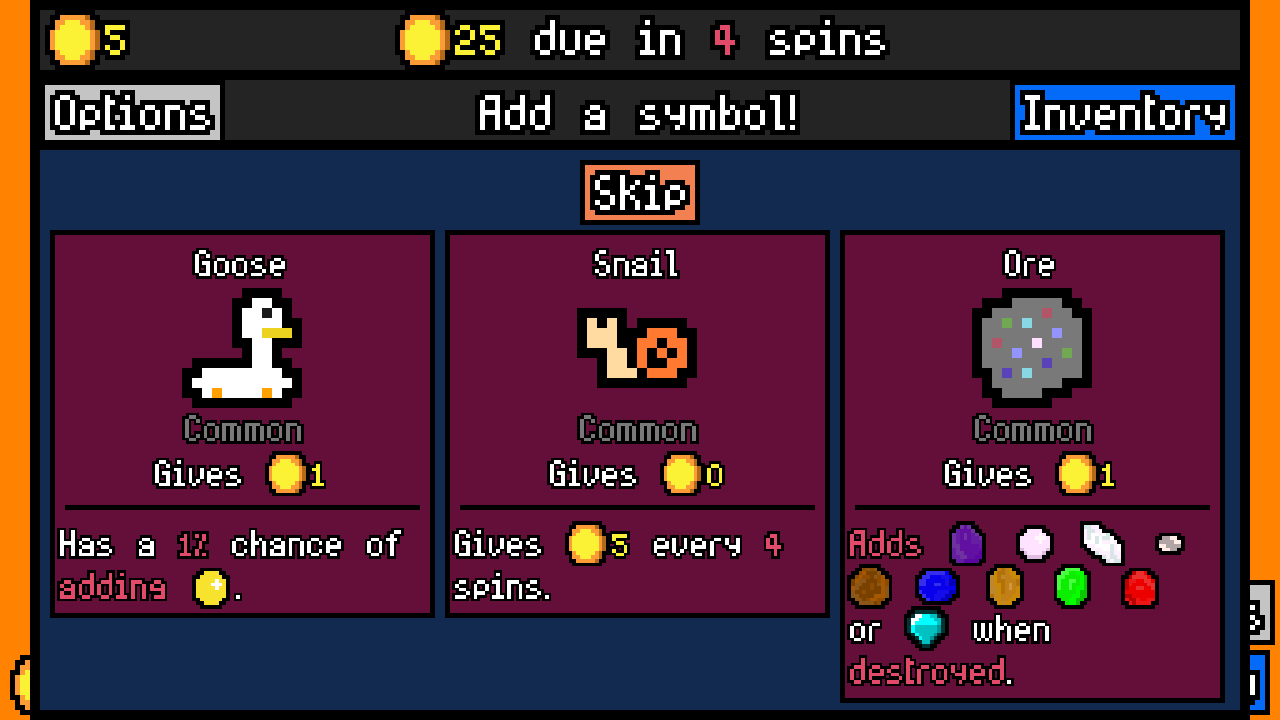
It is in Landlord's simplicity, both in the mechanics and visuals, that allows the game to be buoyant, rather than sink deep like a heavy stone when it comes to its politics. No deep, complex or nuanced conversations here, admittedly: it wouldn't mesh well with the luck-and-roll style of gameplay. It doesn't want to criticize or deconstruct capitalist machinations, the ways they impact our life, but instead wants to give a quick middle finger to the buzzards that are landlords and billionaires, like a 90's skateboard kid flippin' you off.
The landlord is in control of your shelter and home, in-game and IRL. Every successful round in Luck Be A Landlord comes with a follow-up apathetic email from your landlord increasing your rent. The final round is a boss fight against the property owner, where not only do you have to earn enough coins to wither down your landlord's health bar, but contend with even more ridiculous rent hikes and debuffs to your existing deck.
To assist you in this, your mutual aid network sends in Commie McComrade to give you essences throughout the months: more powerful versions of already existing items, at times with twisted rewards. And if you're wondering if I made that name up: the emails come from a Commie_McComrade@bouncy.mail address...I told you this shit wasn't subtle.
Oh: did I mention too that billionaires appear as a zero-point symbol, but when destroyed by a guillotine they give 39 coins? Oh, and the Essence of Guillotine destroys YOU if you have a billion coins. Useless items, but added to give the game some more of that radical anti-capitalist flavor.
It's an interesting representation of both its contemporary time period and the developer's political thoughts. The game itself is framed as a battle against capitalism, a struggle against what the developer states is the irrationality and difficulty of paying rent every month. Releasing in early access in 2021 contributed greatly: it was the "end" of the COVID-19 pandemic, the end of rent moratoriums. Many Americans are struggling to afford rent. I certainly know I am. Homelessness is increasing in America, because salaries and wages cannot keep up with rising housing costs.
The politics behind it all elevates Luck Be A Landlord, transforming the simple rouge-like into something more important: something that speaks to the struggles of capitalist society, something that was moved to creation from societal woes under the current system of governance. The pandemic laid many things bare: it opened many laymen's eyes to the problems of their country, and how the ruling class care little for their fellow humans, focusing on the accumulation of power, wealth and status. Luck Be A Landlord offers us a simple fantasy: if you manage to overcome random chance, your landlord can die in one of hundreds of randomly generated ways. It's not reality, but we could benefit from feeding landlords to the buzzards.



